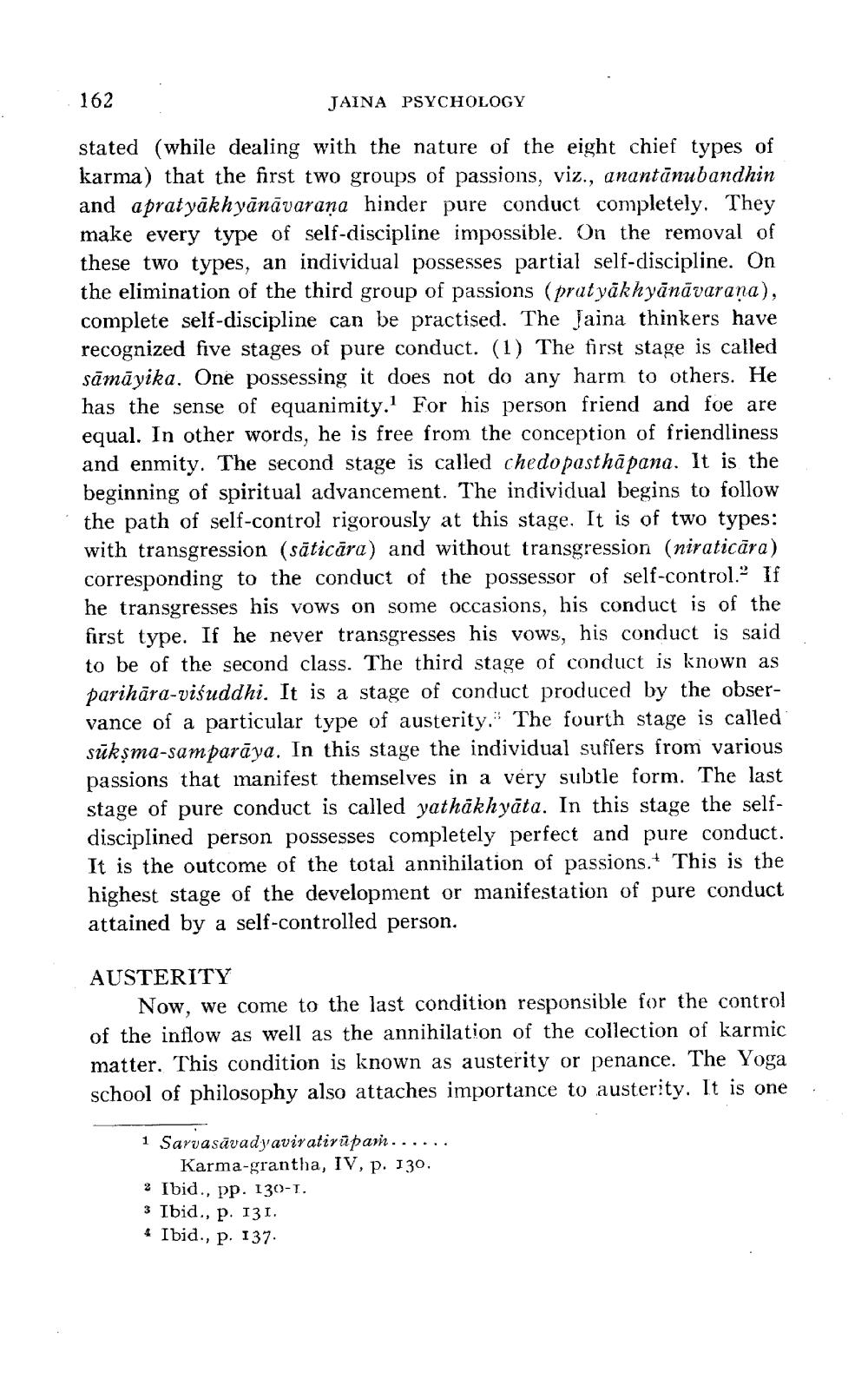________________
162
JAINA PSYCHOLOGY
stated (while dealing with the nature of the eight chief types of karma) that the first two groups of passions, viz., anantānubandhin and apratyākhyānāvarana hinder pure conduct completely. They make every type of self-discipline impossible. On the removal of these two types, an individual possesses partial self-discipline. On the elimination of the third group of passions (pratyākhyānāvarana), complete self-discipline can be practised. The Jaina thinkers have recognized five stages of pure conduct. (1) The first stage is called sāmāyika. One possessing it does not do any harm to others. He has the sense of equanimity. For his person friend and foe are equal. In other words, he is free from the conception of friendliness and enmity. The second stage is called chedo pasthāpana. It is the beginning of spiritual advancement. The individual begins to follow the path of self-control rigorously at this stage. It is of two types: with transgression (sāticāra) and without transgression (niraticāra) corresponding to the conduct of the possessor of self-control.” If he transgresses his vows on some occasions, his conduct is of the first type. If he never transgresses his vows, his conduct is said to be of the second class. The third stage of conduct is known as parihāra-viśuddhi. It is a stage of conduct produced by the observance of a particular type of austerity." The fourth stage is called sūkşma-samparāya. In this stage the individual suffers from various passions that manifest themselves in a very subtle form. The last stage of pure conduct is called yathākhyāta. In this stage the selfdisciplined person possesses completely perfect and pure conduct. It is the outcome of the total annihilation of passions. This is the highest stage of the development or manifestation of pure conduct attained by a self-controlled person.
AUSTERITY
Now, we come to the last condition responsible for the control of the inflow as well as the annihilation of the collection of karmic matter. This condition is known as austerity or penance. The Yoga school of philosophy also attaches importance to austerity. It is one
1 Sarvasävadyaviratirūpam......
Karma-grantha, IV, p. 130. 2 Ibid., pp. 130-1. 3 Ibid., p. 131. 4 Ibid., p. 137




